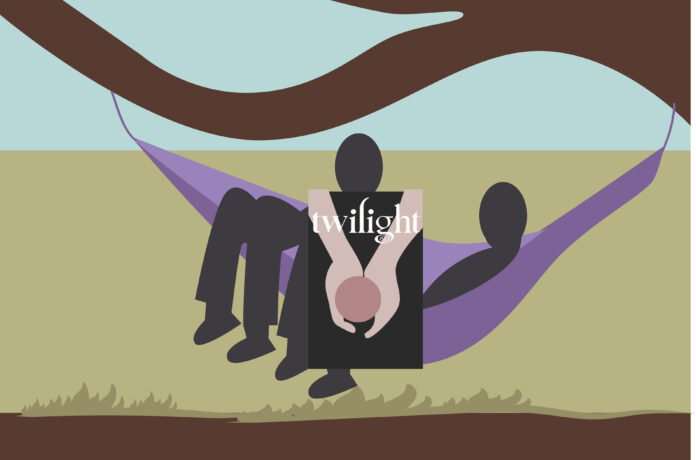The 2018 renaissance of young adult series “Twilight” was a movement no one expected, but probably should have
The original “Twilight” novel was published by Stephanie Meyer in 2005. Meyer went on to publish four novels in the series and a companion novel, which sold over 120 million copies worldwide. The film versions of the novels were even more successful, grossing over $3 billion total. The “Twilight” franchise was a cultural phenomenon, due to how widely it was viewed and how harshly it was criticised.
As a young adult novel that became part of the cultural zeitgeist, “Twilight” was mocked mercilessly for its simplistic writing and cliche storylines. The criticism “Twilight” received was certainly warranted at times: the relationship dynamic between moody, teenage Bella (Kristen Stewart) and 100-year-old vampire Edward (Robert Pattinson) was unhealthy; the movies featured poor acting and there are more than a few questionable stereotypes and problematic treatments of other cultures. There’s also a werewolf-vampire-human love triangle that pushes a lot of boundaries (let’s not get into the imprinting thing).
David Cox writes in The Guardian about the questionable representation of feminism in “Twilight.”
“Bella’s fate isn’t only dispiriting; it’s also deceptive,” Cox writes. “On the whole, beguilement by a teenage bad boy, however courtly his manner, doesn’t lead to eternal love; nor is self-abnegation a reliable route to bliss.”
All of these criticisms are warranted and hard to dispute. So why has there been a resurgence of “Twilight” in the media since 2018? The final installment of the movie series debuted in 2012. No one had been talking about “Twilight.” Its cultural moment had passed, and it was on trajectory to fade from our memories like many other teenage franchises.
In the wake of the 10-year-anniversary of the first film, however, the hashtag “‘Twilight’ Renaissance” recalled everyone’s attention. The hashtag arose when fans of the series began posting jokes about it as well as defending their passion for it when they were younger.
Petrana Radulovic writes in an article for Polygon that this resurgence is not necessarily a bad thing.
“Fans of the series from back in their teenhood feel like they can finally talk about it the way they wanted to, years later,” Radulovic said. “For them, the initial surge of ‘Twilight’ popularity was coupled with derision which morphed into a sense of self-hatred about their own hobbies and interests.”
Radulovic discusses the villainization of the “Twilight” franchise and how grown adults would attack young girls for their love of something mainly because that thing is inherently teenage and girly. Fans were mocked for being supposedly simple and shallow.
Unsurprisingly, much of the hatred of the series was rooted in misogyny. This is seen in more than the “Twilight” franchise: Beloved boy bands, UGG boots and drinks at Starbucks have all been brutally ridiculed.
“The cultural hatred of things geared toward teenage girls — it is usually disproportion to how bad those things actually are,” a YouTuber under the pen name of Strange Aeons said in a video about the topic. “Twilight is bad, but it’s not as bad as we all thought it was.”
Not many people who are participating in this online movement are uncritical of the series. It would be hard to argue that the “Twilight” series is without its flaws; however, people are standing up against the shame and humiliation that they once endured due to the soft spot they once held for the series. If young boys can play violent video games without being mocked or seen as lesser, girls should be able to admit that they like a movie about a vampire.
Young girls have enough pressure on them. If they want to escape into a world or franchise that makes them happy, they should feel entitled to do so. Grown men love the Beatles, yet forget that much of their success was due to the passionate attention they received from female fans. The things that young women love often become a part of our culture, so the reclamation of “Twilight” should not come as a surprise to anyone.
Written By: Alyssa Ilsley — arts@theaggie.org




